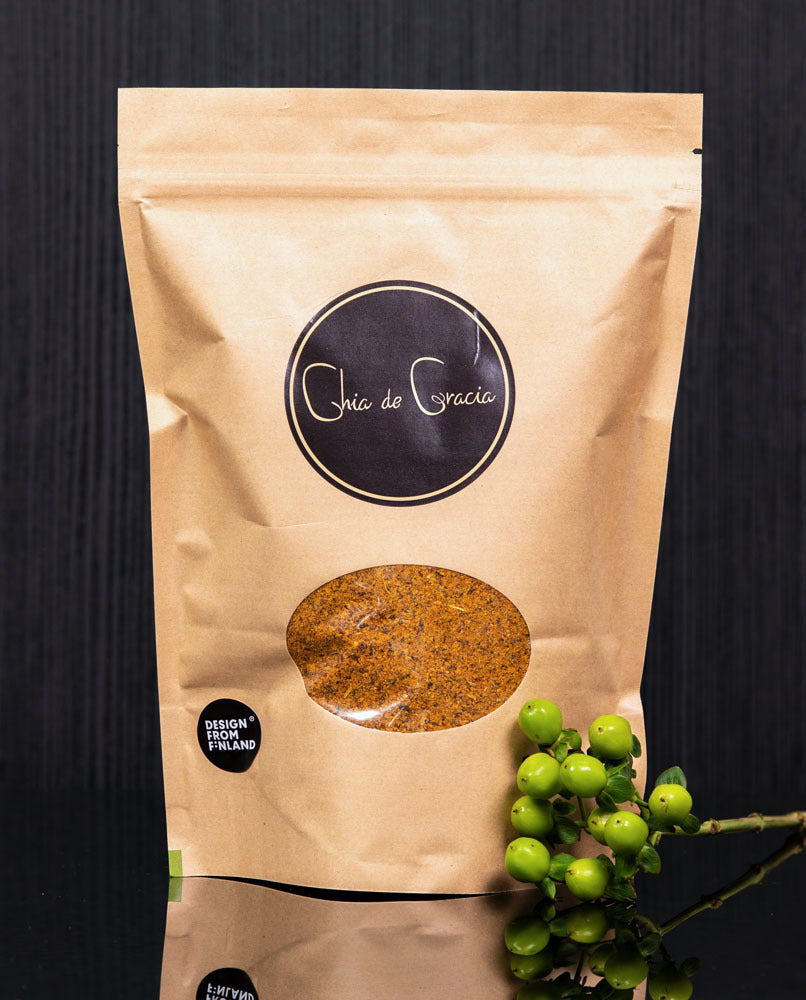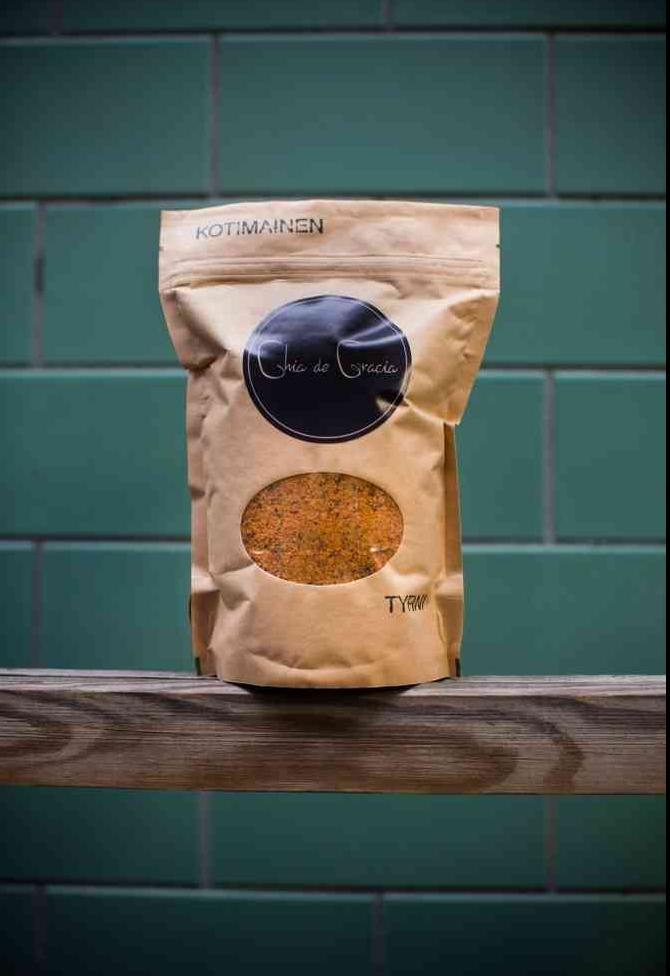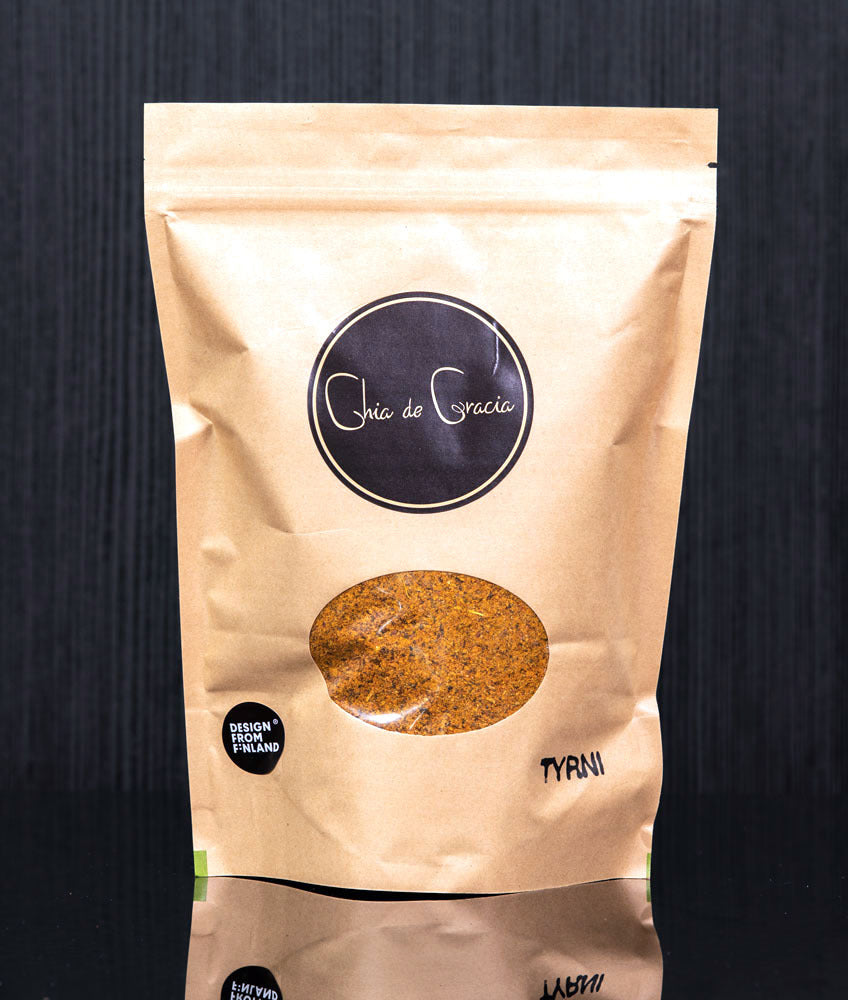Chia de Gracia
Sanddornschrot
Verfügbarkeit für Abholungen konnte nicht geladen werden
Sanddorn ist eine Vitaminbombe ohne Vergleich! Enthält ausgezeichnete Nährstoffe zur Unterstützung des Wohlbefindens von Haut, Magen und Darm sowie des Immunsystems von Pferden und Hunden. Enthält alle Vitamine außer Vitamin D.
Dosierung Pferd 500 KG:
1– 3 EL / Tag.
Hund:
1 TL – 1 EL. 1 EL = 4 G.
********************
Sea Buckthorn is an extremely vitamin rich berry. It contains all vitamins except vitamin D. Particularly rich in vitamin C and E and beta-carotene. Vitamin E and flavonoids supports the body's immune system resistance.
There are lots of polyunsaturated antioxidants and fatty acids in the seeds, which have beneficial health effects for example improving inflammation. Sea Buckthorn can also be used as a nutritional supportive aid for ulcers in addition to drugs. Sea Buckthorn oils have a beneficial effect on the structure of the mucous membranes and may be helpful in the treatment of various allergies. Due to omega-fatty acids, Sea Buckthorn has good effects on skin and hair condition and it also may enhance vision.
In animal experiments, oil has also been shown to strengthen the liver function by protecting the liver cell membrane from the poisons.
Dosage: horse 1 tbsp - 3 tbsp / day, dogs 1tl- 1 tbsp / day
1 tbsp weighs about 4 g.
Use: natural nutrition booster, wellness of the skin and mucous membranes, intestinal health.
Vitamins of the Sea Buckthorn
- Vitamin C or ascorbic acid 10-20 times more than in oranges. Tyrni flavonoids greatly contribute to the absorption of vitamin C.
- Vitamin A as well as its precursor beta-carotene and cartilage antibodies that are highly effective antioxidants and important for skin and hair health.
- Vitamins E. This very powerful antioxidant in the stomach is more than any other plant. Flavonoids and beta-carotene enhance the absorption of vitamin E.
- Vitamin K to a small extent 10 μg / 100 g. Vitamin K affects, among other things, blood clotting.
- B1 Tiamine, affects metabolism and the nervous system.
- B2 Riboflavin, affects metabolism, white blood cells, skin and eyes.
- B3 Niacin, affects metabolism, nervous system, brain, skin and blood cholesterol.
- B5 Pantothen acid, affects metabolism and immune system.
- B6 Pyridoxine, affects metabolism, the immune system. Metabolism, immune system
Dried and crushed.
Animal studies:
Rats were given orally Sea Buckthorn seed oil and berry oil oil once a day (7 ml / kg / day) for a week (Xing et al. 2002). Thereafter, three types of gastric ulcer were caused. Both oils reduced peptic ulcer formation compared to control (Tween 80). The ability of the oils to improve the already existing gastric ulcer was investigated so that rats were first affected by gastric ulceration with acetic acid. They were then given oils for 12 days. Those ones given oil, gastric ulcers were found to be 45% less than in control animals. In all cases, the effects were similar to those of the gastric acid secretion-reducing drug.
Domestic gastric ulcer is found mostly in horses. Gastric ulceration of the horses is treated by repairing feeding failures and by medication that limits the secretion of gastric juices. The horse's stomach is two-part. There is no mucus or hydrochloric secretion gland (pars nonglandularis) on the inner surface of the forehead. Gastric one side of the inner surface of the secreting mucous membrane (pars glandularis). The effects of a special Sea Buckthorn product (SeaBuck SBT Gastro-Plus) were studied in the treatment of horse gastric ulcer (Huff et al. 2012). The study was carried out with a changeover pattern. Horses received a berry product of 70 g per day for four weeks.
During the study, gastric ulcer was monitored by insemination and as a change in the pH of the gastric acids.
Sea Buckthorn feeding did not help the number of gastric ulcers in the "pars nonglandular" section of the gastric stomach, but in the "pars glandularis" section, the number of gastric ulcers was statistically significantly decreased during the test period.
Composition:
Vitamin A 18.2 mg / 100g
- alpha-carotene 2.3 mg / 100g
- beta-carotene 15.9 mg / 100g
Vitamin C 126.9 mg / 100 g
Vitamin E 25.8 mg / 100 g
Phosphorus 2.88 g / kg
Potassium 5.99g / kg
Calcium 0.64 g / kg
Copper 7.00 mg / kg
Magnesium 0.71 g / kg
Manganese 10.0 mg / kg
Iron 48.0 mg / kg
Zinc 17.0 mg / kg
Omega fatty acids:
- Alfalinolic acid (Omega 3)
- Palmotoleic acid (Omega 7)
- Linolenic acid (Omega 6)
Share







